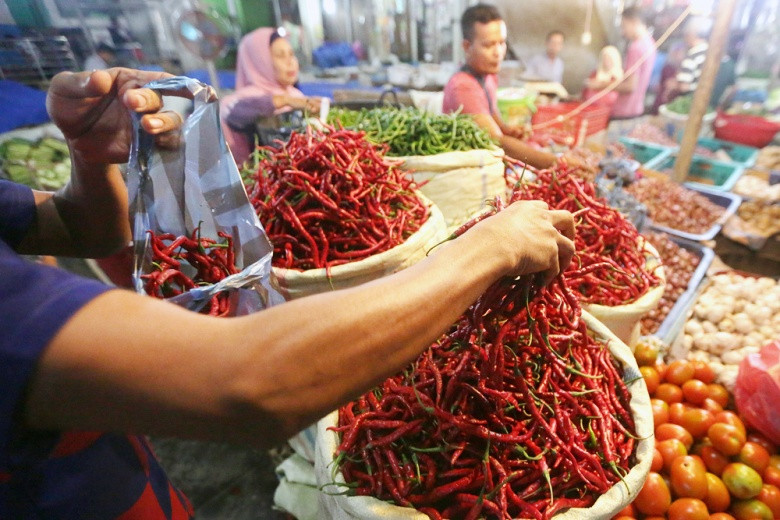Popular Reads
Top Results
Can't find what you're looking for?
View all search resultsPopular Reads
Top Results
Can't find what you're looking for?
View all search resultsSufficient food supply, weak demand to lower April inflation: BI
Bank Indonesia (BI) expects the April inflation rate to drop to 2.8 percent year-on-year (yoy).
Change text size
Gift Premium Articles
to Anyone
B
ank Indonesia (BI) expects the April inflation rate to drop to 2.8 percent year-on-year (yoy), from 2.9 percent in March, as a result of sufficient food supplies and weak demand, the central bank governor says.
BI Governor Perry Warjiyo said the central bank’s survey estimated 0.2 percent month-to-month (mtm) inflation in April, while yoy inflation would stand at 2.8 percent. The rate is consistent with BI’s inflation target range of 2 to 4 percent this year.
“Factors that affect inflation remain under control as the central government and regional administrations work hand in hand to ensure the availability of the food supply,” Perry told reporters during a media briefing on Thursday.
Read also: BI to dominate ownership of 'pandemic bonds' as debt burden grows
“Another factor is that the economic growth level will be lower than the country’s production capacity, resulting in a low level of demand.”
Perry said the central bank saw little impact from the weakened rupiah on annual inflation, adding that inflation expectations remained well-anchored following BI’s monetary operations.
In March, several commodities prices in the personal care and food and beverage expenditure groups rose, Bank Mandiri chief economist Andry Asmoro wrote in a recent research note.
Read also: Panic buying hurts consumption growth in the long run, analysts say
“The inflation was related to COVID-19 as the outbreak increased demand for hygiene products and online orders of food and beverages due to the social distancing policy,” Andry said. Bank Mandiri estimated this year’s inflation would reach 3.25 percent.
“This relatively higher inflation forecast compared to the 2019 realization of 2.72 percent is caused by a higher risk of volatile inflation, particularly food inflation due to the COVID-19 outbreak, which has limited the food supply.”










